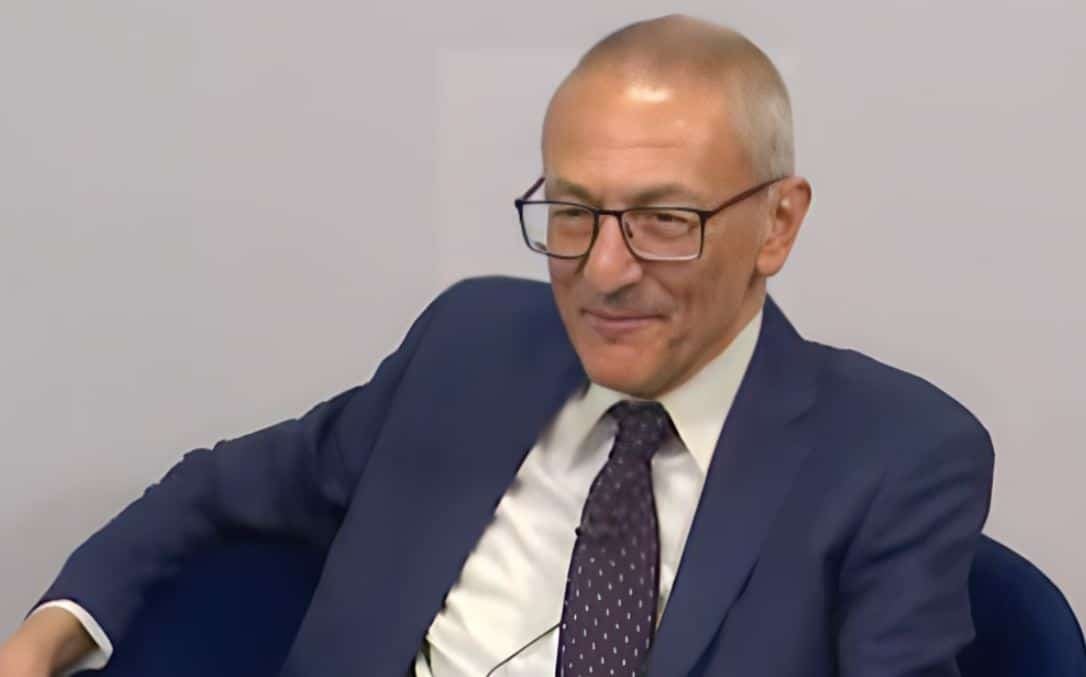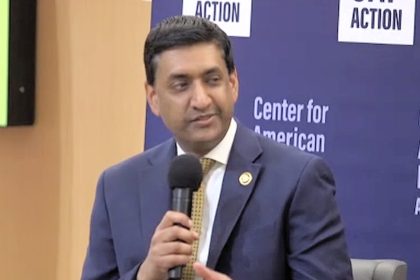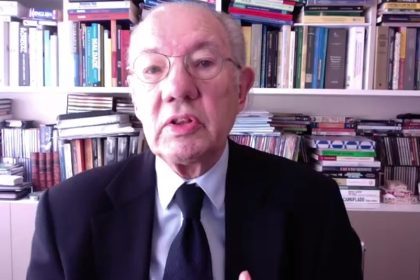Podesta Says Permitting Priorities Build on Manchin Bill

WASHINGTON — When it comes to energy permitting reform, it sounds like even the president is looking to Sen. Joe Manchin’s, D-W.Va., proposal as a starting place for discussion.
As the United States looks to build infrastructure projects and other efforts for optimal environmental and social outcomes, speeding up project approvals in the federal permitting and environmental review process has become a priority. But permitting reform is politically complicated.
Efforts to optimize permitting and build out a clean energy economy have been suggested by Manchin, Senate Energy and Natural Resources Committee chair, who introduced the Building American Energy Security Act of 2023; ENR ranking member John Barrasso, R-Wyo., and Senate Environment and Public Works Committee ranking member Shelley Moore Capito, R-W.Va., who have unveiled two pieces of permitting reform legislation for consideration in their respective committees.
In addition, EPW Chairman Tom Carper, D-Del., recently announced he, too, would be releasing a permitting proposal.
John Podesta, senior advisor to the president for Clean Energy Innovation and Implementation, spoke to the administration’s priorities for federal permitting reform at a recent Bipartisan Policy Center event, and just as he took the podium, the Biden-Harris administration also released a fact sheet outlining those priorities.
Podesta said that the United States has been hampered by an inefficient regulatory system that blocks its ability to build infrastructure projects quickly, but that stars appeared to be aligning for true reform, and Manchin’s bill appears to be the preferred starting point.
“We got so good at stopping projects that we forgot how to build things in America,” Podesta told the BPC. “Now we need to up the pace and finish the job by lowering the remaining hurdles … and one big hurdle — and one big opportunity — is permitting.
“This administration is doing all we can with the tools we have, but frankly, we could use some more tools to move further and to go faster. We need Congress to give us more tools.
“Manchin … has championed permitting reform for a long time,” Podesta said. And while he said the president “doesn’t love everything in the bill,” Congress should “build on Sen. Manchin’s legislation with additional reforms.”
“It’s time to build the economy through American industrial strategies,” Podesta emphasized.
“The modern industrial strategy is now coming to life thanks to the president’s Investing in America agenda, and at the heart of that is clean energy,” he said, but “right now the permitting process for clean energy infrastructure … is plagued by delays and bottlenecks.”
Awaiting approval for decades is “just unacceptable,” he said, adding that some laws themselves are long outdated.
Podesta’s favorite example appeared to be the law governing mineral claims.
“It’s long past time to update our ancient mining laws, which were written in 1872,” he said. “Even though the memoir of Ulysses S. Grant is still on recommended reading lists, mining legislation he signed more than 150 years ago is a little out of date!”
According to the administration’s fact sheet, “these outdated laws contribute to slower permitting timelines, inhibit sound siting and planning, create conflicts, and are barriers to the responsible expansion of domestic critical mineral production.”
While the administration says it seeks comprehensive permitting reform from Congress, it also announced that it would use its own existing authority to accelerate the federal permitting process by taking actions like establishing a new interagency Memorandum of Understanding to facilitate the permitting of electric transmission infrastructure.
According to the White House fact sheet released Wednesday, this MOU will “direct federal agencies to conduct federal permit decisions and environmental reviews for transmission lines within two years and allow applicants to petition the president directly to issue any permit, certificatio or opinion if a permitting schedule milestone is missed or if an authorization is denied.”
For his part, Manchin says his bill is looking to “accelerate, not bypass,” and facilitate permitting of all types of American energy and mineral infrastructure without circumventing environmental laws or community input.
Podesta said that Manchin’s bill was a great starting point for discussion.
Permitting efficiency reform is paramount, which includes incentivizing state and local permitting reform standardization along with enhanced data collection, addressing gaps in the permitting workforce, and establishing clearer requirements for mitigating environmental harm.
The administration also seeks to achieve more clean energy capacity connected to the grid through improved transmission lines and connections as well as a hydrogen and carbon dioxide infrastructure, with federal siting authority for this infrastructure. Incentivizing redevelopment for formerly contaminated sites, old mining sites, and closed landfills to contribute to clean energy production and improve environmental conditions is also necessary.
Podesta says these priorities and other possible reforms can confront America’s energy concerns with pragmatism, not politics.
“Right now, we are in the midst of a climate crisis. One that demands that we build, build, build clean energy,” Podesta said. “If we can’t build some new things in a few backyards, the climate crisis will destroy everyone’s backyards along with [things] we want to protect.”
You can reach us at [email protected] and follow us on Facebook and Twitter






















